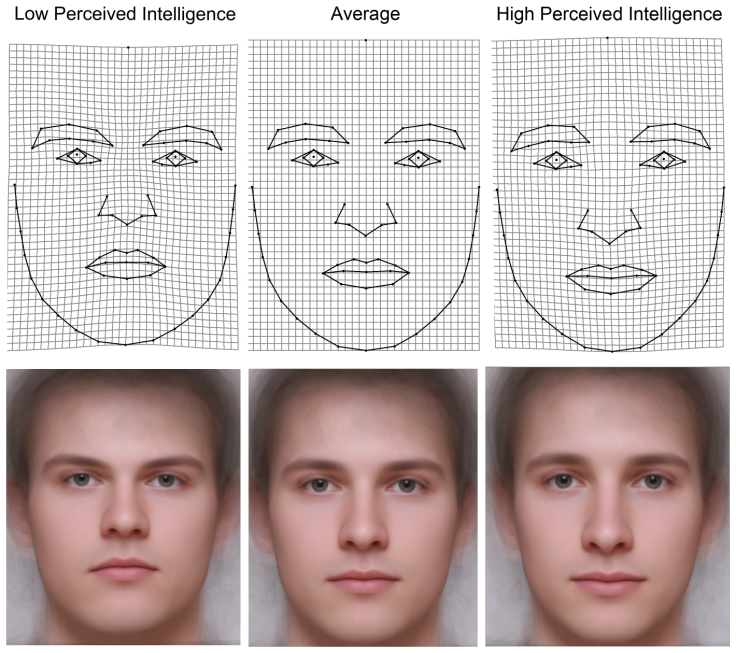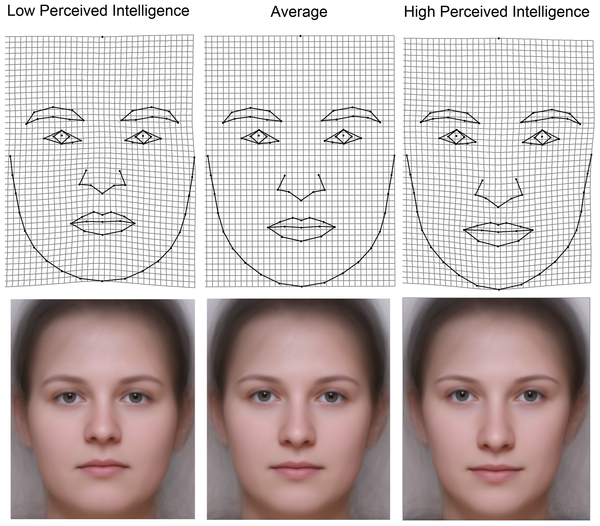Facial Features Predict IQ In Men: Long Face And Wide-Set Eyes Make Men Look Smart, But Not Women

Most of us will admit we’ve judged a book by its cover, and also people, based on their physical appearance. We also tend to perceive people who wear glasses as more intelligent when compared to those who don’t, but Czech researchers now suggest we can predict a man’s IQ based on how he looks. The study published in the journal PLoS One found men, but not women, with a long face and wide-set eyes are perceived as more intelligent.
“The ability to accurately assess the intelligence of other persons finds its place in everyday social interaction and should have important evolutionary consequences,” wrote the researchers in their report. Faces, the researchers say, help inform us about someone’s personality, sex, age, health, ethnicity, social rank, attractiveness, political affiliation, and to some extent their level of intelligence. While several researchers have suggested that people tend to associate higher IQs with a higher level of attractiveness, this research team sought to describe the specific facial traits that play a role in intelligence assessment, as well as those that correlate with actual intelligence.
To investigate which particular factors of general intelligence can accurately be assessed from facial photographs, 160 participants (75 men and 85 women) were asked to rate the photographs of 80 Czech university students (40 men and 40 women). Each student in the picture completed a Czech version of the Intelligence Structure Test that uses various types of tools to measure the different types of intelligence. The images were close-ups of the students’ faces, which featured a neutral, non-smiling expression, and did not wear jewelry or cosmetics, Business Insider reported.
The raters took their time rating each photograph for either intelligence or attractiveness. Of the raters, 43 women and 42 men judged photos for intelligence, and 42 women and 33 men judged them for attractiveness using a scale of 1 to 7 (1 being the highest score, 7 being the lowest possible score). The researchers then averaged the intelligence and attractiveness scores each student received.
The findings revealed both men and women were able to accurately evaluate the intelligence of men by just viewing the facial photographs. Men in the photos with a higher IQ were perceived as more intelligent much more than women in the photos who also had higher IQ scores. In both sexes, a narrower face with a thinner chin, and a larger, prolonged nose characterized the predicted stereotype of a higher IQ, while a rather oval and broader face with a massive chin and a smallish nose led to a prediction of low-intelligence.


The researchers found there were two factors of general intelligence that were significantly associated with perceived intelligence from men’s faces — fluid intelligence and figural intelligence. “Fluid intelligence is the capacity to logically solve problems independent of acquired knowledge,” wrote the authors. “Figurative intelligence describes the ability to handle objects such as images, patterns and shapes.”
While the study found this finding to hold true for men, why were these cues of higher intelligence not visible in women’s faces? The researchers speculate this is “due to some genetic and developmental association to sex steroid hormonal agents during puberty,” but it could also be attributed to how women are frequently judged based on their attractiveness rather than IQ.
The discrepancy between men and women’s perceived IQ can also lend to the halo effect. Psychology Today says the halo effect can refer to people’s tendency to rate attractive individuals as more likable for their personality traits or characteristics compared to those who are less attractive. The researchers believe in this study, “the strong halo effect of attractiveness may thus prevent an accurate assessment of the intelligence of women.”
Meanwhile, it seems like we can judge a man’s intelligence by sight.
Source: Chvátalová V, Flegr J, Kleisner K. Perceived Intelligence Is Associated with Measured Intelligence in Men but Not Women. PLoS One. 2014.



























